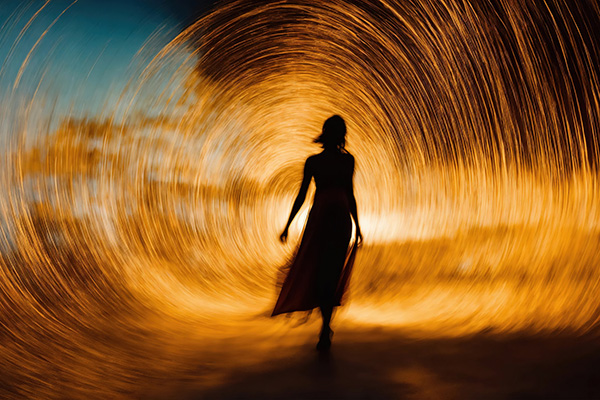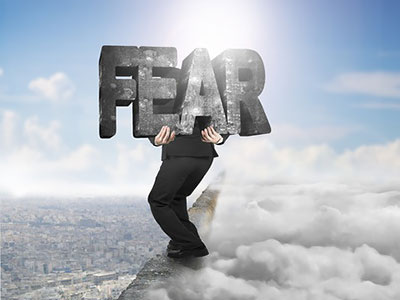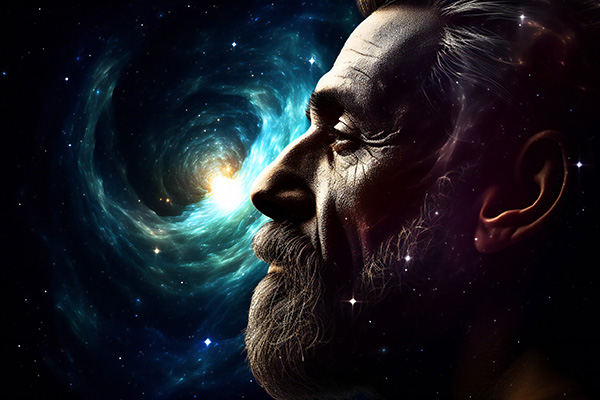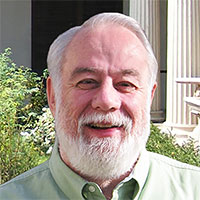The Difference Between Soul Rescue And Soul Retrieval
 In shamanic and spiritual traditions, soul recovery practices are based on the understanding that a person’s soul essence or ‘life force’ can become fragmented or lost due to trauma.
In shamanic and spiritual traditions, soul recovery practices are based on the understanding that a person’s soul essence or ‘life force’ can become fragmented or lost due to trauma.
While these two shamanic arts are closely related and often assumed to be the same practcie, they refer to different contexts of healing. There is a subtle, but key difference.
Soul retrieval is the most common term used in modern shamanism and it is based on the idea of soul loss.
When a person experiences a severe physical or emotional trauma, such as an accident, abuse, grief, or a difficult breakup, a part of their vital essence may abandon the body to survive the experience. This is essentially a spiritual survival mechanism, similar to dissociation in psychology.
This disassociation might be related to the trauma of a car accident or extreme injury, or perhaps a memory of a time in someone’s life when an attribute of their soul felt threatened or fearful.
Other typical examples include physical, sexual or emotional abuse as a child; a feeling of abandonment after the death of a relative; financial ruin; nearly dying; or loss of a job.
Someone suffering from this kind of soul loss might feel “spaced out,” numb, incomplete, or like they are watching their life from the sidelines. Chronic depression or a sense that “I haven’t been the same” since the traumatic event are common indicators.
Always Remember That You Are Enough
 You are enough. If only, as we grew up, we had heard more such words, even if there was an additional “… and yet strive for more”.
You are enough. If only, as we grew up, we had heard more such words, even if there was an additional “… and yet strive for more”.
The fact is we were raised in a world where competition is prevalent; where our insecurities are often emphasized to us, or used as leverage (intentionally or otherwise); where our personal beliefs about ourselves potentially delays our soul evolution.
As partners in the Universe we say to ourselves, “Everything has a reason, we each have a soul purpose, all is in Divine Order.”
Yet, when a tragedy or life shattering moment hits, we are so intimately impacted that we have to dig deep to console ourselves and try to reframe that that tragedy has a Divine purpose, and that you have enough and are enough in that moment.
Perhaps such a life event is the loss of a family member, a loving relationship, job, pet, or a financial crisis, or any other life-changing event. Our faith in Divinity may keep us going, but it does not change the fact that we are deeply grieved by this loss.
Our ego will bring up all sorts of emotions, including anger, grief, betrayal, denial, hatred and many other emotions. You may espouse such things as, “Why them why not me” or “I feel cheated” and “How could this happen”.
In our Divine space, devoid of analytical ego, we know in our heart this experience is for our soul growth path and those closely connected with us, but that is still hard to face.
The Magicless Misery Of ‘Compare And Despair’
 I once attended a Toastmasters meeting where a gentleman was delivering his first speech to this specific group. It was an ice breaker to have us get acquainted with him. Instead of the typical short autobiographical introduction this speaker chose to give us an overview of his philosophy of life.
I once attended a Toastmasters meeting where a gentleman was delivering his first speech to this specific group. It was an ice breaker to have us get acquainted with him. Instead of the typical short autobiographical introduction this speaker chose to give us an overview of his philosophy of life.
He told his audience that he sees himself entering a new phase of his life right now. He spoke about how important it is to get to know yourself and to take care of yourself first and foremost, and to always live in the moment.
After the speech and applause, the toastmaster reflected briefly on what the talk meant to him as he had listened. He said it reminded him of a mentor who had once, many years ago, said to him, “Compare… and despair”. If in life you are constantly comparing yourself to others, or comparing what you have with what others have, or what you feel you lack, or need to achieve, then all that will do is bring yourself unnecessary despair.
The only thing you should ever compare yourself against, his mentor added, is yesterday. Today did you do something constructive or grow in some way that makes you a better person than you were yesterday?
Too often we compare ourselves with our peers, both in our personal and professional lives. Why did he get a raise and not me? Why can I not find a soulmate like she did? Why can’t I be a successful entrepreneur like him? How come they get to have all these wonderful vacations?
False Education Appearing Real (F.E.A.R)
 I love the acronym F.E.A.R. (False Education Appearing Real) since we all have people, circumstances, phobias and so forth, that can put us into that space.
I love the acronym F.E.A.R. (False Education Appearing Real) since we all have people, circumstances, phobias and so forth, that can put us into that space.
Fear is an instance of emotion that is triggered by the awareness, or anticipation of danger. It can also become a state of being. Excluding clinical fears, needing professional help, there are many fears we simply impose upon ourselves as a result of life experiences.
One of my fears is acrophobia, the fear of heights. When I get within five feet from the edge of a rooftop, I begin to shake.
Climbing 30 foot ladders has me nervous and when I hiked to the pinnacle of the mountain of Macchu Picchu in 2004, I could not take those last six nervous steps onto the plateau pinnacle rock. This was partly being due to a few other tourists already sharing the rock… and I am a little “accident prone.”
Although I was invited by my partner and the guide, I leaned against the rock debating my fear, shaking a little at the prospect and wishing that I could take those final steps, as I might regret it after I hiked down. Part of me did regret not taking those last steps when we got back to the base.
Yet, a bigger part of me knew I had to acknowledge the feelings in the moment, and since I am not a regular exerciser, I already had accomplished something tremendous by taking the hike to the top and back down the back side of the mountain. On the way I enjoyed the magnificent views and spiritual energy for several hours. Continue reading
How To Navigate The Chaos Like A Champ
 The physical life adventure we signed up for before we were born has many twists and turns. From our careers and relationships to personal health and world events.
The physical life adventure we signed up for before we were born has many twists and turns. From our careers and relationships to personal health and world events.
While these ups and downs of life and love are exactly what we came here to experience for our personal enlightenment and soul evolution, they can sometimes throw us into moments of chaos, frustration, anxiety and even instense despair.
The key to not becoming disoriented or deflated in these difficult moments is to always remember why we are here in the first place, no matter how crazy things may get. Every time we face adversity or have to overcome setbacks and obstacles, we are making progress on our amazing soul journey.
Embracing the dynamic and sometimes very challenging nature of our existence is essential to fulfilling our spiritual mission. Staying balanced in an ever-changing environment is not just a possibility – it is an exciting opportunity for self-discovery and spiritual empowerment.
Change and uncertainty are inevitable. Developing a mindset of flexibility and adaptability can help you navigate the chaos with greater ease. Surrender to the knowledge that you can’t control everything, but you can control your thoughts, mindset and reactions.Amid chaos and despair, remember: every setback is a step forward in your amazing spiritual odyssey!
Three days ago, a deer collided with my car two hours from home. It did not survive and my vehicle is no longer drivable. The hardest thing for me was the grief of killing one of God’s beautiful creatures. Why did I not see it earlier and react sooner?
From Ancient Mystics To Modern Psychics
 Psychics and mediums have been around since the dawn of human civilization: from the shamans in indigenous cultures, to the oracles of ancient Greece and Rome, the seers and druids of Celtic societies, the sages of ancient China, and the prophets of ancient Middle Eastern cultures.
Psychics and mediums have been around since the dawn of human civilization: from the shamans in indigenous cultures, to the oracles of ancient Greece and Rome, the seers and druids of Celtic societies, the sages of ancient China, and the prophets of ancient Middle Eastern cultures.
Some famous examples include Pythia, the Oracle of Delphi in ancient Greece; the Celtic soothsayer Myrddin Wyllt, also known as Merlin in later Arthurian legends; the Chinese wu (shaman) Jing Fang; Black Elk, the renowned Native American holy man of the Oglala Lakota Sioux people; Isaiah, the renowned prophet of the ancient Near East; and Agastya, the revered Hindu sage and seer.
Throughout human history, in different cultures and societies, there have always been individuals with mystical abilities who held important roles within their communities and served as intermediaries between the physical world and spiritual realms.
They served as conduits of divine wisdom, predicting future events, providing insight into hidden truths, and offering guidance on various matters. They often acted as special advisors to tribal leaders, rulers, and kings, and typically played an important role in the moral and spiritual direction of their people.
The term “psychic” comes from the Greek word psychikos, meaning “of the soul, spirit, or mind.” In Greek mythology, Psyche was the goddess of the soul. Her name literally means “soul” or “breath.” Over time, the term came to encompass aspects of the mind beyond the ordinary.

